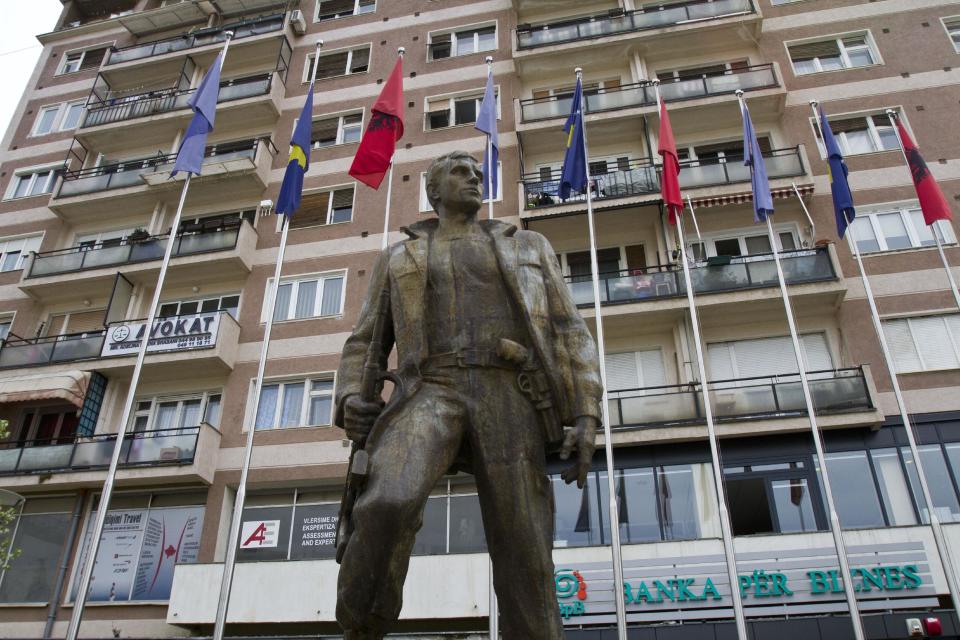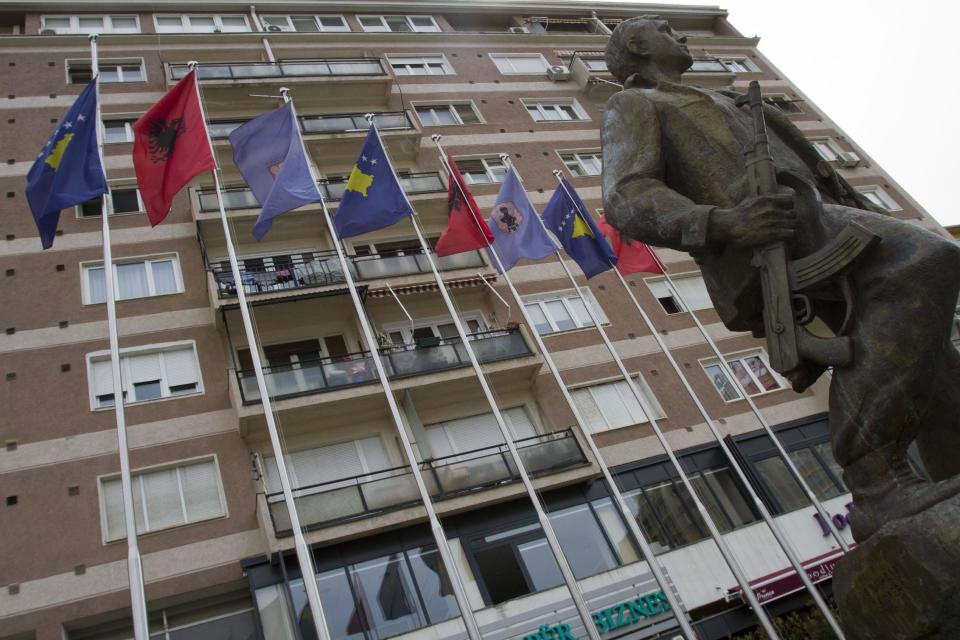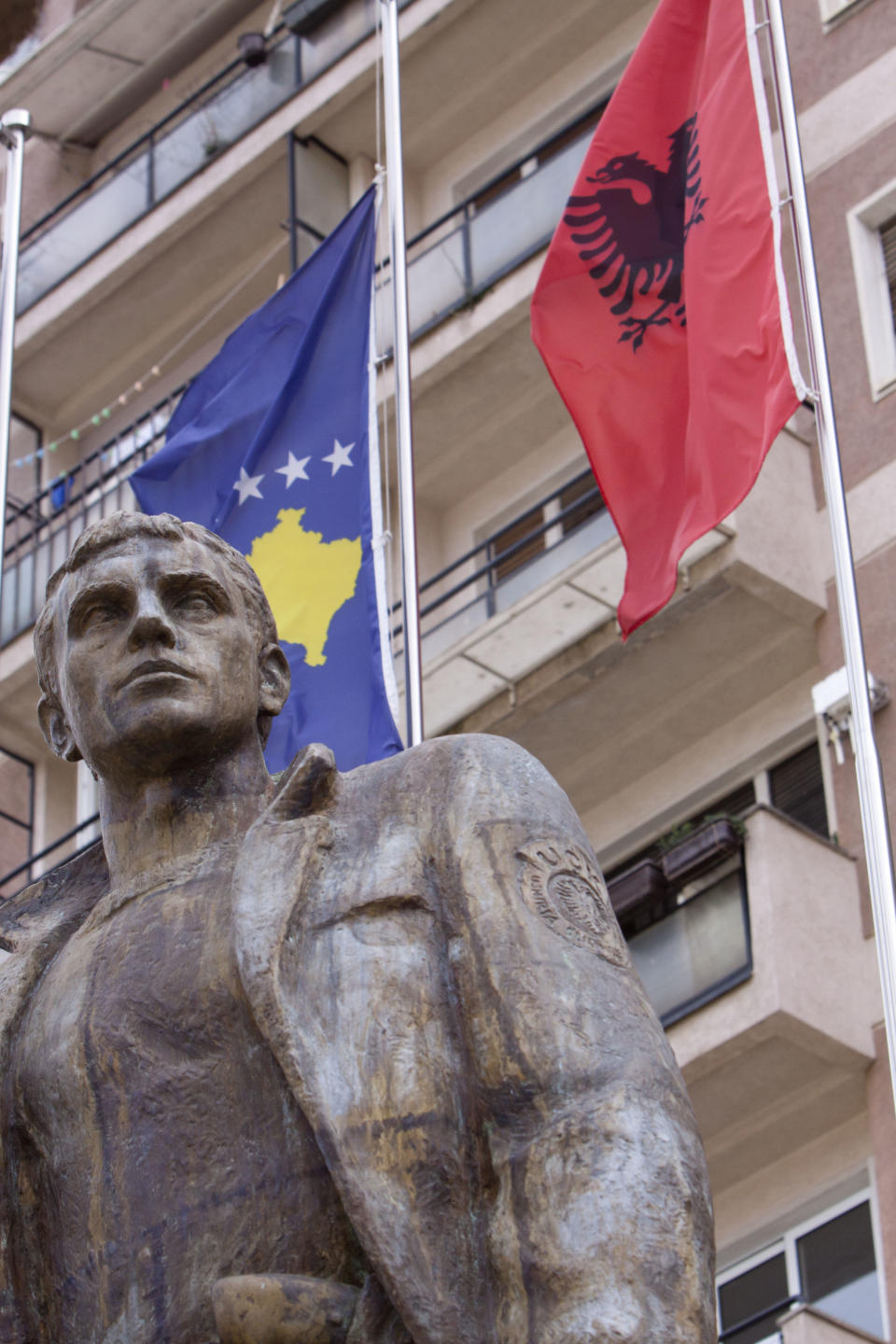AP Exclusive: EU to set up court for Kosovo crimes
PRISTINA, Kosovo (AP) — The European Union plans to set up an international tribunal focusing exclusively on crimes allegedly committed by Kosovo's ethnic Albanian rebels during their war with Serbia, The Associated Press has learned.
Plans for an independent tribunal amount to an admission of failure by the West to hold its ethnic Albanian allies accountable for war crimes. The rebels had the backing of NATO during the war — and the West has staunchly supported Kosovo in its efforts to emerge from the conflict as an independent state. But the ethnic Albanians have also come under increasing pressure from the international community to reckon with their own war crimes, including alleged organ harvesting.
Kosovo declared independence in 2008, and it has been recognized by over 100 nations, although not by Serbia and its ally Russia.
The court is expected to start proceedings by next year, a senior EU official told The Associated Press, adding that the rules and reach of the tribunal are still being discussed with Kosovo authorities.
The court is to be symbolically seated in Kosovo, but most key proceedings such as hearing witness testimony would take place in the Netherlands, said the official, who spoke on condition of anonymity because the deal has yet to be approved by Kosovo's assembly.
Prosecutions of ethnic Albanian rebels — both in Kosovo and at the United Nations war crimes tribunal in the Hague, Netherlands — have been marred by widespread intimidation of witnesses and their families. Former rebels are considered by many Kosovars as heroes who fought for freedom from Serbia. Some 10,000 people died during the 1998-1999 war and about 1,700 are considered missing.
The court, which will be set up and paid for by the EU, is to consider allegations of organ harvesting by the now-disbanded Kosovo Liberation Army rebels as well as the disappearance of some 400 people — most of them Kosovo Serbs — at the end of the war. A two-year investigation led by a U.S. prosecutor, and set to wrap up by mid-June, is to form the basis of any indictments brought before the court. The United States supports the new tribunal.
"We are asking for a court composed only by internationals and an appeals panel composed only of internationals," said the EU official. "The procedure has to be done and has to be done abroad. It's the only way for it to be credible."
Kosovo has yet to agree to the 170 million euro tribunal but failure to do so would damage its claim to statehood. Some Kosovars noted the dilemma they faced.
"This is a tribunal to try ethnic Albanians," said a senior Kosovo official, skeptical about whether lawmakers will support the tribunal when it is discussed in Parliament next week. "However, we are fully aware that any other option is worse."
The official spoke on condition of anonymity because of the sensitivity of the deal.
U.S. Ambassador Tracey Jacobson insisted on Friday the judicial body that will be set up will be a Kosovo court and not an international tribunal, a term she said implies an external mechanism created without Kosovo having a say.
"The proposal is for the creation of a Kosovo court implementing Kosovo law, staffed with international judges, and that has an external and internal seat," Jacobson said.
But EU member states such as Spain have been reluctant to endorse a court that would recognize Kosovo as a state and implement its laws because they reject Kosovo's secession. Greece, Slovakia, Romania and Cyprus also refuse to recognize Kosovo's secession from Serbia.
A top international official in Kosovo said that once set up, the court will draft its internal procedures but the laws used will include Kosovo law, the penal code of the now defunct Yugoslavia — in use at the time when the crimes were committed — as well as U.N. legal documents promulgated while Kosovo was under U.N. control.
Serbia's Deputy War Crimes Prosecutor Bruno Vekaric told the AP that "setting up of the tribunal would present an encouragement for the victims and their families."
"This is important for reaching justice and for reconciliation in the region," Vekaric said.
Kosovo's justice system was set up and originally run by a U.N. administration in control for nearly a decade. An EU mission called EULEX took over judicial responsibilities in Kosovo on the eve of its 2008 independence declaration. Since then, EULEX has often come into conflict with Kosovo's ruling coalition, made up mainly of former rebels unhappy that their fellow fighters were being investigated for war crimes.
Highlighting the difficulties in protecting witnesses, an ethnic-Albanian was found hanging in a German park in an apparent suicide after he was named in local media as a whistleblower in a war crimes case against a senior rebel and former ally of Prime Minister Hashim Thaci.
Fred Abrahams, a special adviser to Human Rights Watch who has investigated human rights violations in Kosovo, said the court is important because it may shed light on the fate of hundreds of missing people.
"The organ trafficking is a distraction from the central issue," said Abrahams. "The central issue is about more than 400 people, mostly Serbs, who went missing after the war."
Plans to set up the court have been met with anger by former rebels, many of whom hold senior governing positions in Kosovo.
"It's absurd, it makes no sense," said Muharrem Xhemajli, the head of Kosovo Liberation Army veteran's association. "Our war that was supported by the international community, the United States and all the freedom-loving people is now being put on trial."
___
Jovana Gec in Belgrade, Serbia contributed to this report

 Yahoo News
Yahoo News 


